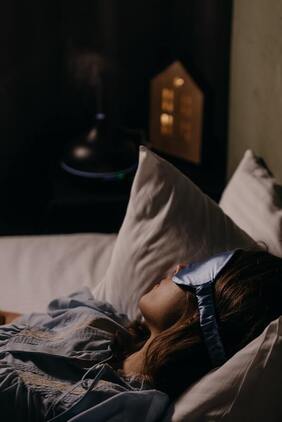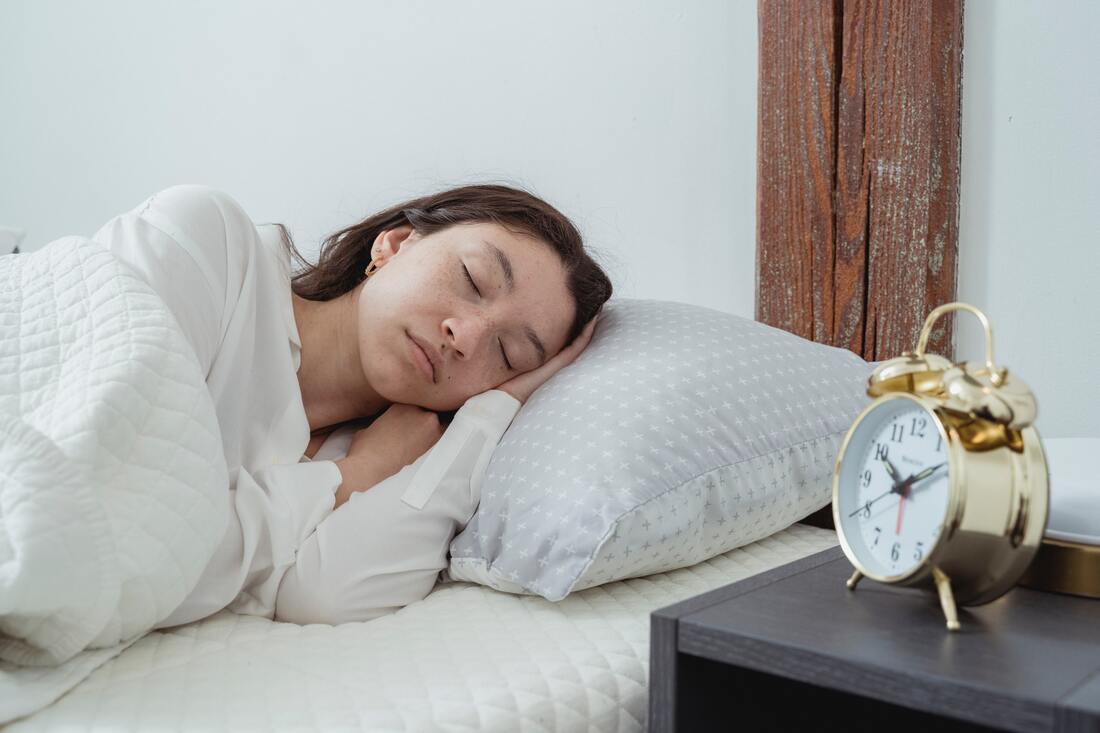|
A restful night's sleep is often something that can be elusive for many of us. Between 10% and 30% of adults struggle with chronic insomnia. It is believed between 30% and 48% of older adults experience insomnia. Many people simply acclimate to their situation, and live life constantly tired. While this may work for them, we don’t recommend it. Being well rested shouldn’t be unattainable for anyone. We’ve put together a list of some recommendations that we hope will help you get the rest you need so you may live a full, happy, WELL RESTED life!  Put yourself on a sleep schedule This one seems obvious, but is it something you’ve tried? If so, do you close your eyes once you’re in bed, or do you find yourself scrolling social media? I think that most parents, especially those with babies or young children, would agree that getting their children on a sleep schedule makes their lives easier. Not only does it help mom and dad get into a routine for themselves to accomplish their parental duties, it is vital if you want to curb those sleepy eyed temper tantrums from the little ones. Implementing a sleep schedule for yourself is doing the same thing, although we hope you’ve learned to manage your emotions a tad more than a toddler! Even so, adults can also get very cranky and short with others when not rested. Seven hours is the recommended amount of sleep for a healthy adult. Most people don’t need more than eight hours to be well rested. If you can, go to bed and get up at the same time every day, even weekends to reinforce your body’s sleep-wake cycle. If you find yourself not falling asleep within 20 minutes, get up and do something relaxing. Pick up a book, and read a chapter. Listen to some calming music. Anything to help lull you into a sleepy state, and go back to bed. Repeat as needed, but maintain the sleep/wake up schedule you’ve set for yourself. Pro tip: Cut off all electronic stimulation a half hour before your bedtime. Monitor what you’re consuming throughout the day Discomfort from either eating too much OR not having eaten enough could be keeping you awake. Caffeine, alcohol, and even nicotine can also be major factors too. Stimulants can take hours to wear off, and are likely hindering your sleep, and while alcohol can make you sleepy at first, but when it metabolizes while you’re asleep it can wake you up. Everyone’s experience will be different based on your history, but pay attention to your body, and make adjustments to see if they have any impact. Your bedroom. Is it set up for rest? The space where we sleep has a huge impact on how we sleep. Is your bedroom set up to be a place of rest, or is it chaotic? An ideal set up for your bedroom is dark, quiet, and cool. Any light, or noises (except for white noise) can really mess with your ability to sleep. Our body temperatures naturally drop during sleep. A cooler room will assist in getting you to sleep, and more importantly, STAYING asleep. Light also has the same effect, especially if you’re not a heavy sleeper. Black out curtains can help eliminate as much light as possible. The condition you keep your room in is key as well. We’re not saying that it needs to be completely sterile, with everything in its place. We know that’s not realistic for everyone. However, it is hard to be restful surrounded by chaos. Tidy up your room and give it a try! Make time for physical activity every day If you have a job at a desk, or something that doesn’t require much physical exertion, you’re probably mentally tired by the time you get home, but not physically tired. It’s important to get your body moving. Sleep is meant to repair our bodies, however, if your body doesn’t need to be repaired from lack of activity, it might be cheating you out of valuable sleep time! Try getting outside for a little while each day to move your body. It doesn’t have to be major. A half hour in the garden, maybe an hour long walk. Something to trick your body into being physically tired is what you’re looking for. Are you a bedtime worrier? If you’re like me, bedtime is when you tend to reflect on the day you just had, and start thinking about the day ahead. If your daily life is busy, you probably find yourself already worrying about tomorrow, and making a to-do list in your head while you're laying down waiting to go to sleep. In my experience, those thoughts can swirl around inside your head for hours on end. Work on those worries and concerns before bed. Keep a notepad and pen on your nightstand. Get them out of your head and onto paper so those thoughts are waiting for you when you wake up, but aren’t swirling around in your head while you try to fall asleep! You may need some deeper stress management work as well. Start with the basics, such as getting organized, setting priorities and delegating tasks. Meditation also can ease anxiety. A worried mind is hard to get to rest. Instead of kicking the can of stress down the road for tomorrow, do yourself a favor and deal with it today. Closing thoughts As you can see, there are a variety of reasons that can be preventing you from getting the sleep you need and deserve! Try out a few of our suggestions to see if they could help you out! Just remember that your sleep habits are ingrained within your body, and whatever you try, give it a reasonable amount of time before trying the next thing. Until our next blog, Take Care! |
Categories
All
Archives
June 2024
|
Massage News - Articles of Interest
|
|
Recent Testimonials
"After a car accident a few years ago I have had problems with my shoulder. Rita helped me with the pain when doctors couldn't."
- Jo A. "I have suffered from chronic headaches and several back injuries for years. Regular massage has helped me to increase my flexibility and reduce muscular tension."
- Sheila P. |
About Us
We are a family-owned and operated company, serving the Bemidji area since 2004. Rita Scholl Bergstrom has over 25 years' experience as a massage and bodywork practitioner. |
2024 Copyright © Living Touch Massage. All Rights Reserved.
Site powered by Superior Effect Marketing



